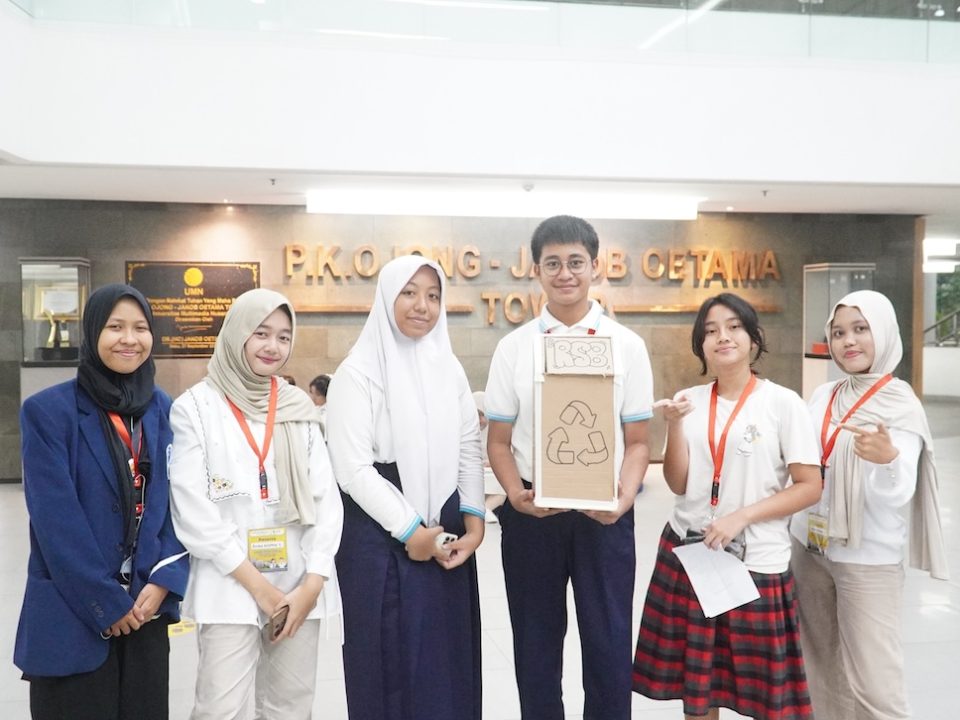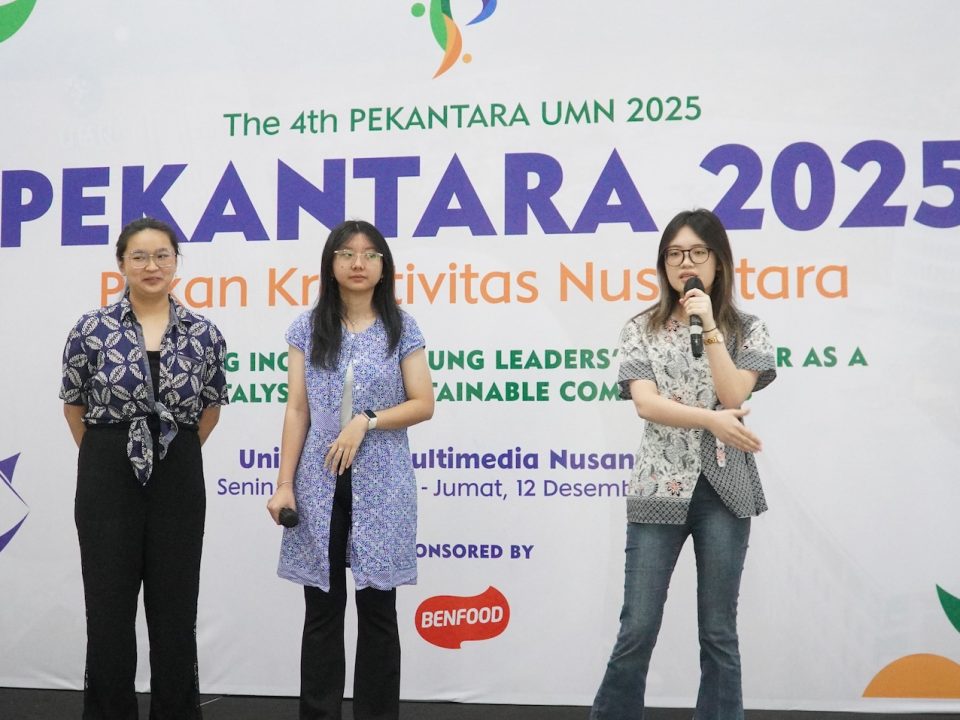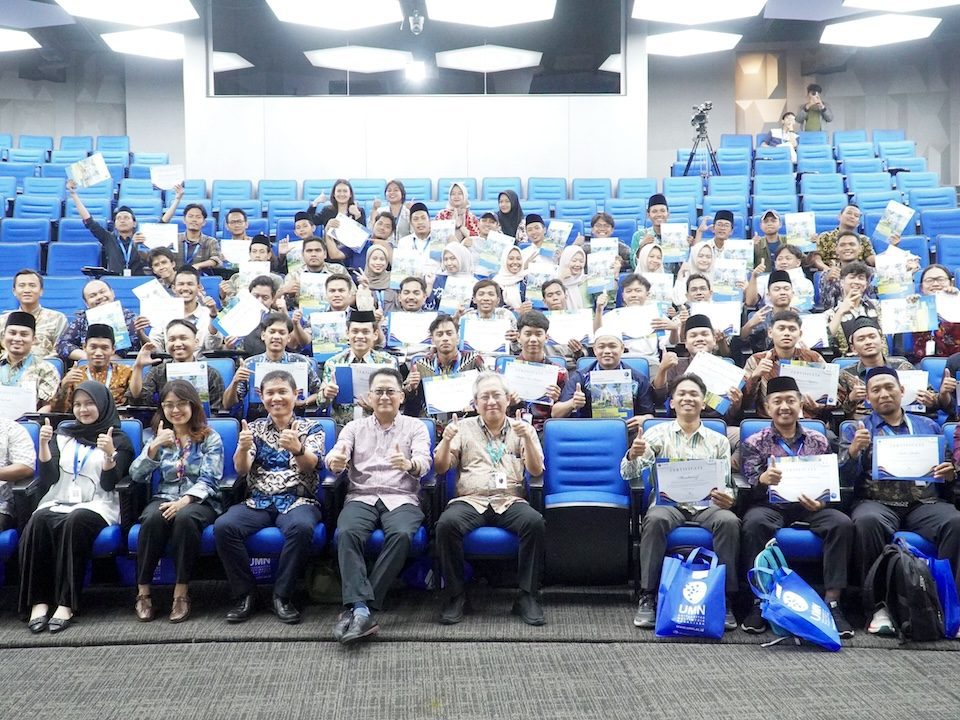
Strategic Communication is the Bridge to Long-term Business Success
December 23, 2024
UMN Data Confirms Broad Access for All Groups, Advancing Reduced Inequalities
December 23, 2024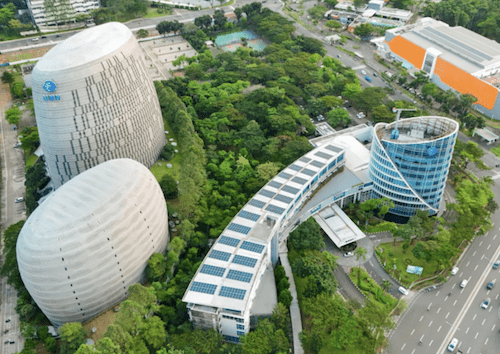
UMN Building and solar panel (Doc. UMN)
As part of its commitment to the Sustainable Development Goals (SDGs), especially on Climate Action, Universitas Multimedia Nusantara (UMN) has taken meaningful steps to adopt and monitor the use of low carbon energy across the entire campus. These efforts demonstrate UMN’s strong dedication to addressing climate change and position the university as a leading example of renewable energy adoption within Indonesia’s higher education sector.
One of the key initiatives is the installation of 376 solar panels on the rooftop of Building B, providing clean, renewable energy to help meet the campus’s electricity needs. UMN actively tracks and analyzes both the amount of low-carbon energy produced and used on campus to ensure accurate measurement and effective management. In addition, UMN has implemented a range of energy-saving technologies, including a magnetic chiller system with Variable Frequency Drive (VFD), Variable Speed Drivers (VSDs), and energy-efficient LED lighting. These innovations significantly reduce electricity consumption by adjusting energy output based on real-time demand.
The campus environment itself reflects a strong commitment to sustainability. Architectural features such as the double skin facade, rooftop gardens, and a water recycling system are designed to naturally lower indoor temperatures and minimize the need for energy-intensive cooling. To further enhance energy efficiency, public spaces use motion-activated lights equipped with passive infrared (PIR) sensors, while solar-powered streetlights help reduce dependence on conventional electricity. Approximately 30 to 40 percent of the total campus area is reserved for open green spaces, with over 26,000 square meters filled with forest and planted vegetation. These natural elements not only absorb carbon dioxide but also contribute to creating a more comfortable and balanced microclimate throughout the university grounds.

UMN Green Area (Doc. UMN)
UMN’s efforts have gained national and international recognition. The university has received an award for being an energy-efficient building, contributed to the Net Zero World Initiative for Indonesia’s building sector. Beyond infrastructure, UMN integrates sustainability into its curriculum to help students build awareness and responsibility for environmental issues. The university also promotes green behaviors such as cycling, walking, and car sharing to reduce emissions from transportation.
One of the key initiatives in this commitment is UMN’s active participation in the UI GreenMetric, a global ranking that evaluates universities on their sustainability performance. In the 2024 UI GreenMetric World University Rankings, UMN proudly secured the 128th position globally and emerged as the top private university in the Greater Jakarta Area. This accomplishment underscores UMN’s dedication to fostering a greener future and supporting sustainability at every level. For more details, visit UMN is ranked 128th in the world in the UI GreenMetric 2024.
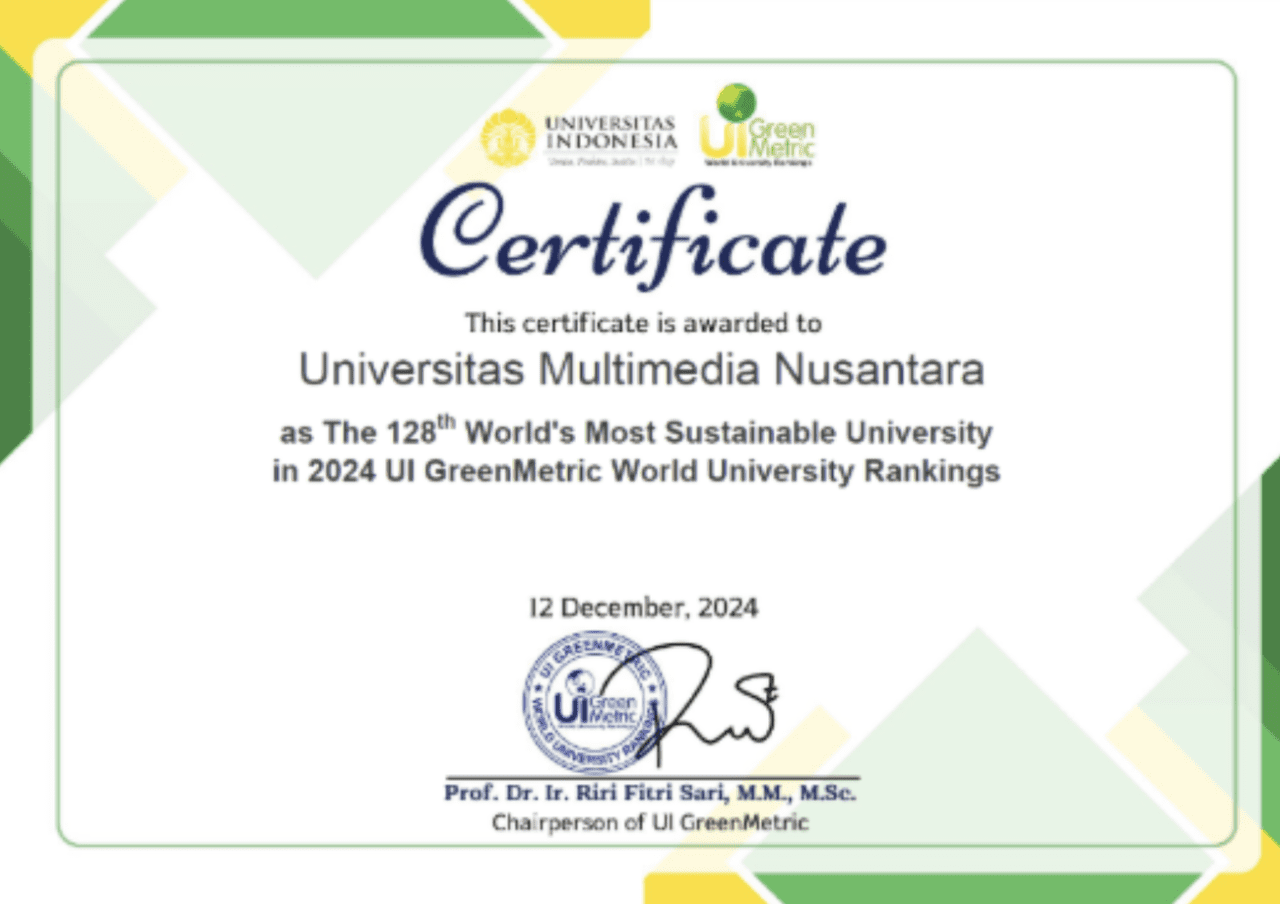
UI GreenMetric 2024 certificate of UMN (Doc.UMN)
In line with this vision, UMN implemented a sustainability policy on March 30, 2022 which marks the beginning of its commitment to achieving net-zero emissions. The university is integrating energy-saving practices, efficient systems, and sustainable planning into campus operations, from installing energy-efficient lighting and equipment to optimizing HVAC systems. UMN also encourages energy-conscious behavior among students and staff, such as turning off lights and using energy-saving devices. These initiatives aim to significantly reduce energy consumption and carbon footprint in the coming years. UMN’s commitment and sustainability performance can be explored further through the UMN SDGs Website and the UMN SUSTAINABILITY REPORT 2024. In addition, we encourage communities beyond UMN to engage with and commit to the shift toward 100% renewable energy, by collaborating with Government and NGO. See here to explore more about UMN Collaboration with Government, Industry and NGO in Energy Conservation 2024.
While these accomplishments mark significant progress, UMN acknowledges that challenges remain. At this stage, carbon emission tracking focuses on electricity and vehicle use, forming the early foundation for future emissions reduction plans. Full tracking of carbon emissions, including Scope 1, 2, and 3 categories, is still on progress. However, UMN remains fully committed to building a sustainable and low carbon campus. Through ongoing collaboration with government bodies, non-governmental organizations, and the academic community, UMN continues to move forward with concrete actions backed by data and guided by a long-term vision for a healthier planet.
Looking toward 2050, Universitas Multimedia Nusantara is dedicated to advancing its energy efficiency programs and embracing innovative technologies that promote sustainability. By continuously improving our energy efficiency, we hope to contribute to broader sustainability goals while prioritizing environmental responsibility within our institution.

